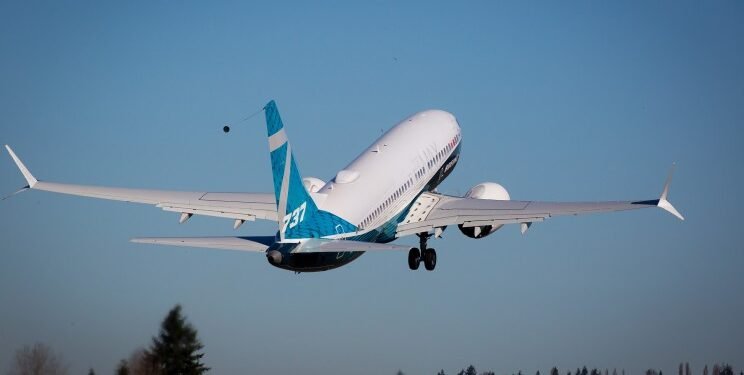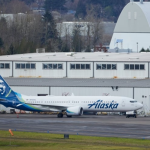The US Federal Aviation Administration (FAA) Administrator Steve Dickson today signed an order that paves the way for the Boeing 737 MAX to return to commercial service.
Administrator Dickson’s action followed a comprehensive and methodical safety review process that took 20 months to complete. During that time, FAA employees worked diligently to identify and address the safety issues that played a role in the tragic loss of 346 lives aboard Lion Air Flight 610 and Ethiopian Airlines Flight 302.
Read also; Tesla to join the S&P 500 index, surges 13% in after-market trading
Throughout the process, FAA said it cooperated closely with foreign counterparts on every aspect of the return to service. Additionally, Administrator Dickson personally took the recommended pilot training and piloted the Boeing 737 MAX, so he could experience the handling of the aircraft firsthand.
The 737 Max, which is the best-selling jet in Boeing’s fleet has been grounded since March 2019 after two fatal crashes in Indonesia and Ethiopia, killing 346 people.
The cause of the crashes was discovered to be due to a safety feature on the plane, which was meant to stop the plane from climbing too fast and stalling had improperly forced the nose of the plane down, causing the crashes.
The process of getting the plane back in the air carrying passengers again has taken longer than expected, and has cost Boeing over $20 billion according to the American company.
In addition to rescinding the order that grounded the aircraft, the FAA also published an Airworthiness Directive specifying design changes that must be made before the aircraft returns to service, issued a Continued Airworthiness Notification to the International Community (CANIC), and published the MAX training requirements.
These actions do not allow the MAX to return immediately to the skies. The FAA must approve 737 MAX pilot training program revisions for each U.S. airline operating the MAX and will retain its authority to issue airworthiness certificates and export certificates of airworthiness for all new 737 MAX aircraft manufactured since the FAA issued the grounding order.
Furthermore, airlines that have parked their MAX aircraft must take required maintenance steps to prepare them to fly again.
The FAA action is only the first step in allowing 59 airlines — spread across 32 countries — to once again fly the 387 grounded planes as part of their schedules. The FAA orders cover only US domestic flights for the 737 Max jets operated by American, United and Southwest Airlines, 72 in total. Flights to or within other countries will need the approval of those nations’ aviation authorities.
And as for the US, the FAA noted in statement that before any of the planes can be flown with passengers again, the necessary changes to the 737 Max identified in the approval process must be installed and the FAA must inspect the individual planes. The pilots must also complete additional training.
That process is expected to take between a few weeks and a few months, depending on the airline.
Most aviation authorities throughout the world are expected to issue their own orders to unground the plane as well. But there could be delays in returning the jet to service around the world.
The European Union Aviation Safety Agency, which oversees flights in Europe, said Wednesday it expects to take action in late December or early 2021.
And regulator Transport Canada said it expects to conclude its review “very soon,” although it added, “there will be differences between what the FAA has approved today, and what Canada will require for its operators.”
Boeing also said it is confident that the plane will be safe to fly once all the required steps are taken.
“We will never forget the lives lost in the two tragic accidents that led to the decision to suspend operations,” said David Calhoun, chief executive officer of The Boeing Company. “These events and the lessons we have learned as a result have reshaped our company and further focused our attention on our core values of safety, quality and integrity.”
Shares of the Boeing surged in early trading on the New York Stock Exchange, but has since erased all its gains, and is currently trading at $203.45 in after market trading, 3.14% lower than its opening price.






















































